‘If the farm is closed, it remains only to close the school — and the village will be gone’
The rais of the republic threatened the heads of districts with punishment for reducing the number of livestock, called for controlling milk purchase prices, and accepted the new agro-industrial complex programme without much enthusiasm
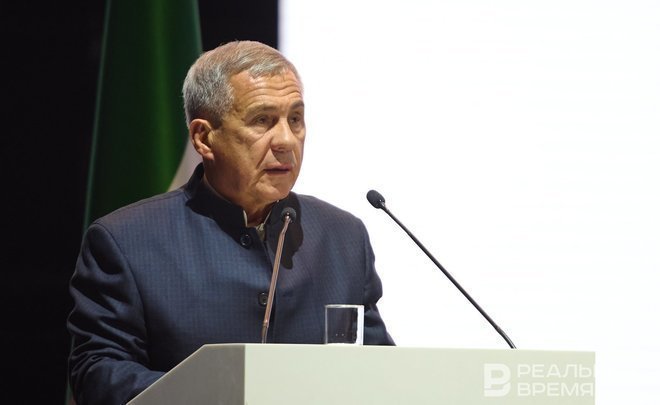
“We used to blame the weather or the market for our failures, but there has never been an ideal weather or market," Marat Zyabbarov, the head of the Ministry of Agriculture of the Republic of Tatarstan, self-critically commented on the results of the agro-industrial complex over the past year. Drought, a collapse in purchase prices, and more expensive loans led to a sharp reduction in agricultural production — by 8%. By order of the department, the Moscow consulting company FBK has prepared an anti-crisis strategy based on a twofold increase in annual budget injections — from the current 16.4 billion rubles to 48.2 billion rubles.
Farmers negative by 8%
For the second year in a row, Tatarstan farmers have been experiencing economic difficulties, although they receive a high grain harvest and record volumes of milk. 3.6 million tonnes of grain, 2.1 million tonnes of milk, 1.1 million vegetables, and 1.7 million tonnes of sugar beet — the giant harvest of 2023 did not save the Tatarstan village from financial losses. Price swings, swung by an excess of grain from a record harvest, Belarusian imports of powdered milk, and logistical difficulties led to an imminent reduction in production.
“The previous year was a test of strength for agricultural producers: a shortage of precipitation, rising prices for industrial products, building materials, higher prices for loans, and all this with a decrease in prices for agricultural products," Marat Zyabbarov outlined the overall picture. According to him, the production index amounted to 92.1%, although due to the growth of livestock production, it was possible to keep the volume of gross output at the level of average indicators. At the same time, sales revenue amounted to 589 billion rubles, and the share of agriculture in the gross regional product was 6.5% (although it decreased by 1.5% compared to 2022).
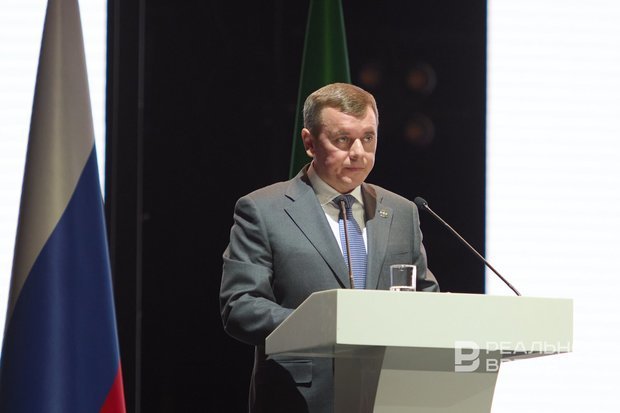
Less poultry
After the collapse of milk purchase prices, the villagers began to slaughter cattle. According to the minister, the number of cattle decreased by 3%, or by 19 thousand heads. “At the same time, there are farms in the republic that have purposefully reduced the number of cattle. These are Agro-Osnova and the farms of Kozlova in the Novosheshminsky district, Zarya in the Buinsky district, Apas-Mol in the Apastovsky district, Mars in the Aznakaevsky district, Tamyr in the Aktanyshsky district, Serp i Molot in the Vysokogorsky district.
“There is a negative trend in the number of livestock in 27 districts," the head of the Ministry of Agriculture and Food of the Republic of Tatarstan is concerned.
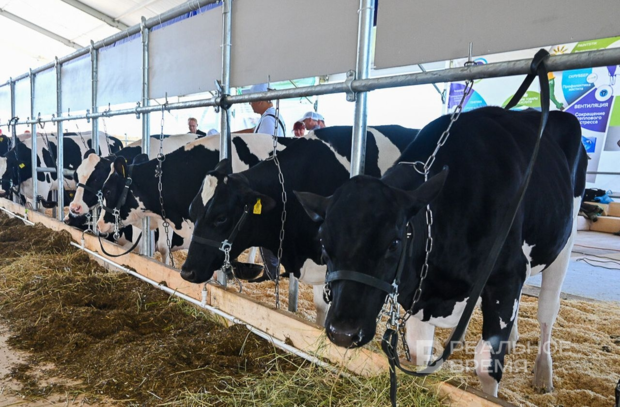
The reduction in the number of livestock affected meat production — minus 13%, or 512.9 thousand tonnes. They found “gaps” in poultry farming. It has been received by 10.8 thousand tonnes of poultry meat less. As for a chicken egg, there is an inexplicable price increase. On the one hand, Tatarstan has increased their production, rising to 4th place in the country, but on the other hand, prices have doubled. “In the republic, as well as in the whole country, the highest price increase occurred for chicken eggs," said Marat Zyabbarov. “A number of measures have been taken to stabilise prices at the regional and federal levels. We will continue monitoring and timely responding to price increases together with colleagues from the Ministry of Industry and Trade, the Federal Antimonopoly Service, and the Ministry of Economy.”
Profitability without state support is less than 3%
Profitability, taking into account state support, is expected to be at the level of 8.9%, without state support — less than 3%, Marat Zyabbyarov said. The share of profitable agricultural enterprises is decreasing. “On the one hand, it is clear that this is due to attracting investments and a long payback period for facilities. Objectively, the costs have increased, due to their rise in price. At the same time, the farms themselves still have a lot of internal reserves," the minister believes. In his opinion, one shouldn't wait for comfortable conditions. “We used to blame the weather or the market for our failures, but there has never been an ideal weather and market before — they are what they are. Without counting on high prices for agricultural products, we must learn to work within the cost that our best farms have," he urged. Nevertheless, the slow growth of the tax debt of agricultural enterprises is alarming. By the results of the year, it amounted to 514 million rubles. 75% are bankrupt enterprises.
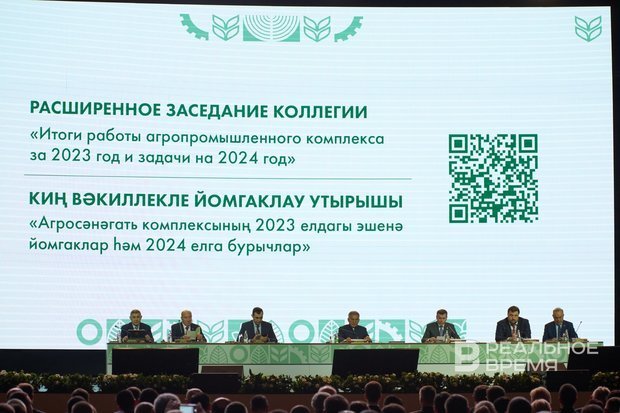
If we leave everything as it is, it will be even worse
The anti-crisis programme of the Tatarstan agro-industrial complex was developed by the Moscow consulting company FBK. It was first introduced by Irina Dubinina, the director of FBK Consulting Services Department. The main focus is a twofold increase in annual budget injections — from the current 16.4 billion rubles to 48.2 billion rubles. But such an impressive increase in investment is inherent in only one of the three options — the most optimistic one. The principle is simple — if there is little state support, it will be bad, if more, it will be better. The starting point is the budget of the Republic of Tatarstan for 2024, which includes 16.4 billion rubles.
“The strategy of the agro-industrial complex of the republic was approved in 2017 until 2023. Approaches to the agro-industrial complex have been adjusted at the federal level. It has a growth rate of 3% a year. And Tatarstan needs to integrate into the new system," Irina Dubinina explained. “According to the UN forecast, consumption growth will outpace food production in the next decade. Demand will grow — in India, the Middle East, and Africa. And the growth of the gross value of the agro-industrial complex will strongly depend on state support.”
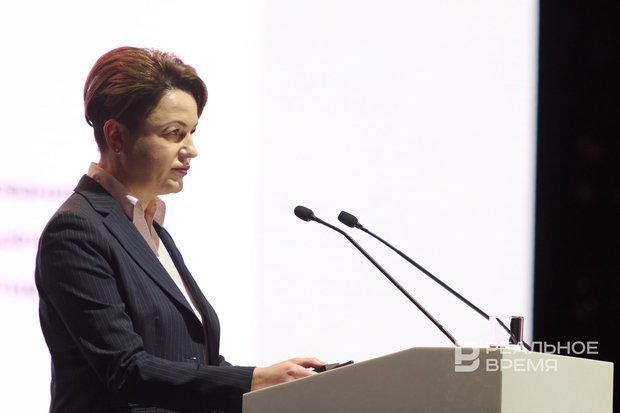
Therefore, attention will be paid to support effectiveness
At first glance, everything is fine with agriculture — production occupies a high position. “But, unfortunately, not everything is as rosy as we would like," Irina Dubinina reasoned. “There are a number of systemic problems in the agro-industrial complex.” According to her, this is the lack of processing within the republic and weak logistics channels: “Demand for agricultural products is lower than supply. This makes us think about what to do with the surplus. There are two problems here — sales and logistical difficulties in entering the export market. The second is on-site processing within the republic (grain, milk, egg).”
She offered options. First, we leave everything as it is, and state support covers inflationary costs. And the growth rate of the agro-industrial complex slow down. According to the second one, an increase of 3.8% per year is by 3% higher than in Russia, and investments will increase from 25 to 40 billion rubles a year. These funds are supposed to be used to expand capacities and purchase equipment. If you bet on being ahead of the curve, you will need a fundamentally different level of state support with an estimated 32 billion rubles per year. And production will grow by 133% by 2030.